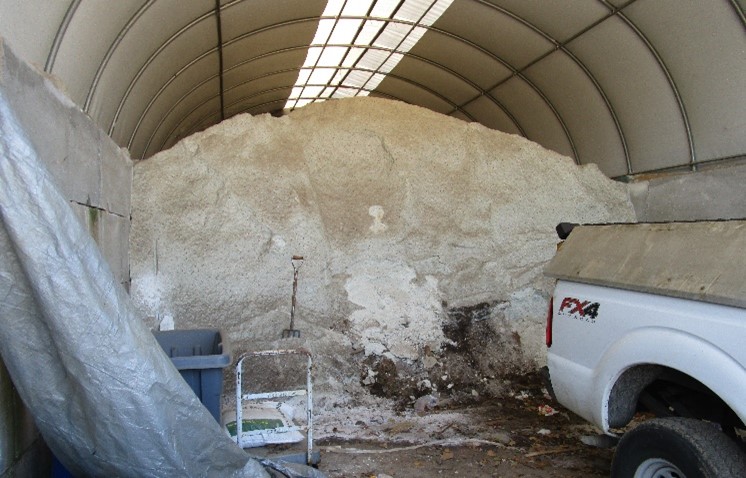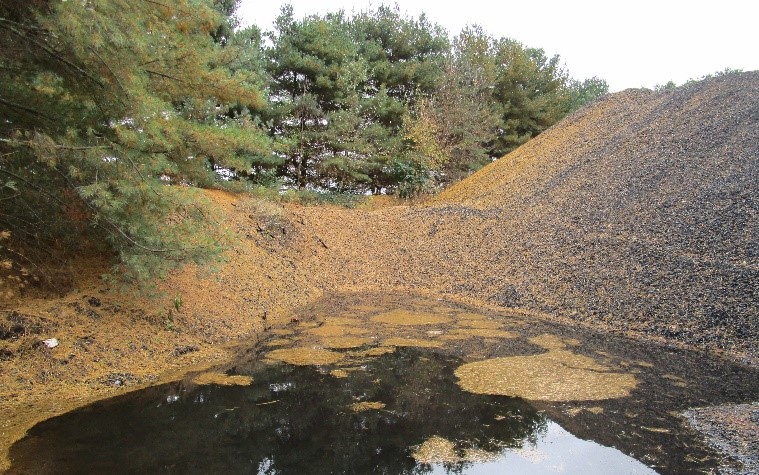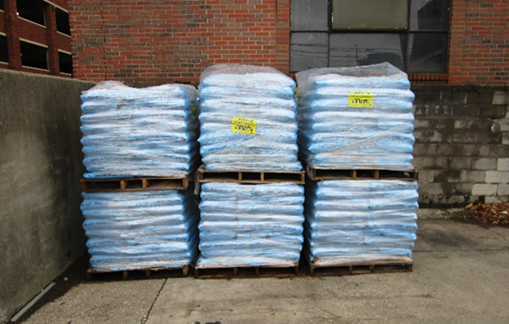Groundwater Protection Plan
Introduction
Groundwater is used for agricultural irrigation, to meet industrial water needs, and is a source of drinking water for a large percentage of Americans. Once thought to be naturally filtered, it is now known that some contaminants can pass through the soil and contaminate ground water. To protect this important resource the Environmental Protection Agency (EPA) has passed laws, such as the Safe Drinking Water Act, The Resource Conservation and Recovery Act, The Comprehensive Environmental Response, Compensation, and Liability Act, The Federal Insecticide, Fungicide and Rodenticide Act, The Toxic Substances Control Act, and the Clean Water Act that focus on controlling groundwater contamination. The responsibility of implementing groundwater protection programs is handed down to states and local governments. To protect groundwater, Kentucky has developed legislation (401 KAR 5:037) that requires entities conducting the following activities to prepare and implement a groundwater protection plan:
|
Activities Requiring Groundwater Protection Plan Development |
|---|
| Storing or handling bulk quantities of pesticides or fertilizers for commercial purposes or for the purpose of distribution to retail sales outlets |
| Application of pesticides or fertilizers for commercial purposes, public right-of-way maintenance, or institutional lawn care |
| Land treatment or land disposal of a pollutant |
| Storing, treating, disposing, or related handling of hazardous waste, solid waste, or special waste in landfills, incinerators, surface impoundments, tanks, drums, or other containers, or in piles |
| Commercial or industrial storing or handling in bulk quantities of raw materials, intermediate substances, or products, finished products, substances held for recycling, or other pollutants held in tanks, drums, or other containers, or in piles |
| Transmission in pipelines of raw materials, intermediate substances or products, finished products, or other pollutants |
| Installation or operation of on-site sewage disposal systems |
| Storing or related handling of road oils, dust suppressants, or deicing agents at a central location |
| Application of related handling of road oils, dust suppressants, or deicing materials |
| Mining and associated activities |
| Installation, construction, operation, or abandonment of wells, bore holes, or core holes |
| Collection or disposal of pollutants in an industrial or commercial facility through the use of floor drains not connected to on-site sewage disposal systems, closed-loop collection, or recovery systems, or a permitted waste treatment system |
| Impoundment or containment of pollutants in surface impoundments, lagoons, pits, or ditches |
| Commercial or industrial transfer, including loading and unloading, in bulk quantities of raw materials, intermediate substances or products, finished products, substances held for recycling, or other pollutants |
If one conducting any of the above activities can demonstrate with substantial evidence that the activity has no reasonable potential to impact groundwater, then a groundwater protection plan is not required.
The following activities are excluded from Groundwater Protection Plan requirements:
|
Activities Excluded from Groundwater Protection Plan Requirements |
|---|
| Normal use or consumption of products sized and packaged for personal use by individuals |
| Retail marketing of products sized and packaged for personal use or consumption by individuals |
|
Activities conducted entirely inside enclosed buildings if:
|
| Storing, related handling, or transmission in pipelines of pollutants that are gases at standard temperature and pressure |
| Storing municipal solid waste in a container located on property where the waste is generated and that is used solely for the purpose of collection and temporary storage of that waste prior to off-site disposal |
| Installing and operating sewer lines or water lines |
| Storing water in ponds, lakes, or reservoirs |
| Impounding stormwater, silt, or sediment in surface impoundments |
| Application of chloride-based deicing materials used on roads or parking lots |
| Emergency response activities conducted in accordance with local, state, or federal law |
| Firefighting activities |
| Conveyance or related handling by motor vehicle, rolling stock, vessel, or aircraft |
| Agricultural activities at agriculture operations |
| Application by commercial applicators of fertilizers or pesticides on lands used for agriculture operations |
Plan Elements
Groundwater Protection Plans must contain the following information:
- Facility information, including the names of those responsible for plan implementation
- The identification of all regulated activities occurring onsite that can impact groundwater
- All practices chosen for the plan to protect groundwater from pollution
- An implementation schedule for protection practices
- A description and schedule of employee training necessary to ensure implementation of the plan
- An inspection schedule for regular inspections to ensure all practices established are in place and functioning properly
- Certification that the plan complies with regulatory requirements, has been reviewed, and will be implemented.
Once a plan is developed it must be retained onsite, amended prior to conducting any new or modified activity, reviewed and recertified every three years, and all records associated with the plan must be maintained for six years.
Groundwater Protection at the University
The University’s Groundwater Protection Plan is developed and maintained by the Environmental Quality Management Department. Rewritten in 2019, the plan addresses the following campus activities that may impact groundwater:
   |
|---|
|
Campus Activities Addressed in the Groundwater Protection Plan |
| Pesticide or fertilizer application for institutional lawn care |
| Storage, treatment, disposal, or handling of hazardous waste, solid waste, or special waste in drums, or other containers |
| Commercial storing or related handling in bulk quantities of raw materials, intermediate substances or products, finished products, substances held for recycling, or other pollutants held in tanks, drums, or other containers, or in piles |
| Storing or related handling of deicing agents at a central location |
| Application or related handling of deicing materials |
Managers and supervisors for the facilities and/or activities covered under the plan are responsible for conducting routine inspections and properly instructing and training personnel to satisfy the plan’s requirements. Environmental Management also conducts annual compliance inspections of each facility/activity.
